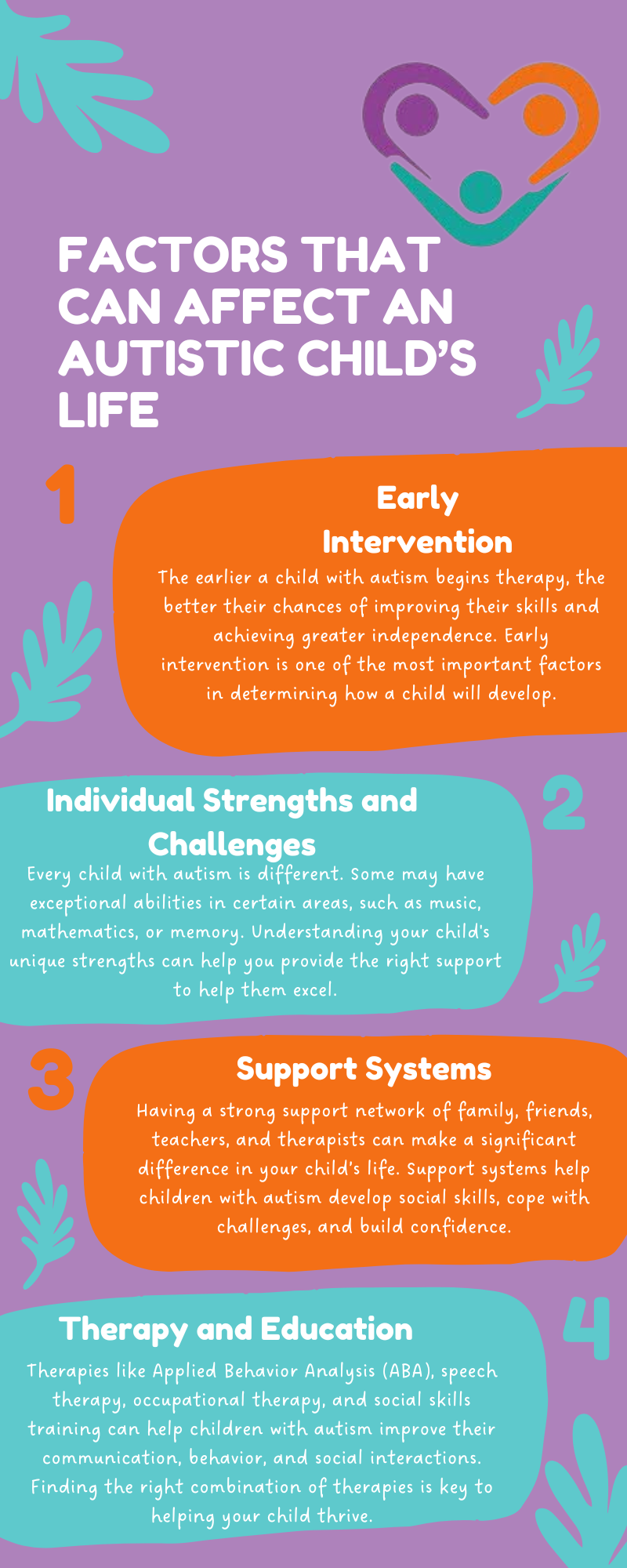As a parent of a child with autism, you may wonder how autism will affect your child’s future and whether they will lead a “normal” life. It’s a question that many parents grapple with, and it can be overwhelming trying to navigate the many unknowns.
While every child with autism is unique, it is essential to understand that autism spectrum disorder affects individuals in a variety of ways. With the right support, therapies, and interventions, many children with autism can thrive and lead fulfilling, independent lives.
Will My Child with Autism Have a Normal Life?
Yes, your child with autism can have a fulfilling and meaningful life, though “normal” may take on a unique definition for them.
Every individual with autism is different, and their journey will depend on various factors, including the level of support they receive, their specific strengths and challenges, and the opportunities available to them.
Many children with autism grow up to lead happy lives, build relationships, pursue careers, and enjoy hobbies. Early intervention, tailored education, and a strong support system can help them navigate challenges and develop skills that enhance their independence and well-being.
Focusing on your child’s abilities is important rather than comparing them to conventional societal standards. While their path might not mirror that of their neurotypical peers, it doesn’t mean it’s less valuable.
Celebrating their progress, fostering their unique talents, and ensuring they feel accepted can make a tremendous difference. By embracing their individuality and providing consistent support, your child has every opportunity to lead a life filled with joy, growth, and purpose.
Understanding Autism Spectrum Disorder
Autism is a developmental disorder that affects social interaction, communication, behavior, and learning. It is a spectrum, meaning that the severity and types of challenges a person faces can vary greatly.
Some children with autism may have difficulty with verbal communication and social interactions, while others might excel in areas such as memory, art, or mathematics. Understanding the nature of autism is crucial in answering the question of whether a child with autism will live a “normal” life.
That said, autism spectrum disorder includes a wide range of symptoms, from mild to severe. This is why each person with autism experiences the condition differently. Some children may need minimal support, while others require more intensive interventions.
It’s important to recognize that children on the autism spectrum are individuals with their personalities, strengths, and challenges.
Children with mild autism or high-functioning autism tend to have fewer communication and social difficulties. They may have above-average intelligence and excel in particular areas, such as academics, music, or art. These children are often able to attend regular schools and live independently as they grow older, though they may still benefit from therapy and social skills training.
Meanwhile, children with severe autism may have significant challenges in communication, social interaction, and daily functioning. They may require constant supervision and specialized support throughout their lives.
However, even those with severe autism can make progress with the right interventions, such as intensive therapy and support systems.
Factors That Impact the Future of a Child with Autism
While autism can present challenges, it’s important to remember that many children with autism grow up to live fulfilling lives. A variety of factors can influence how your child’s life will unfold, including:

In terms of your child’s development, the role of therapy and early interventions cannot be overstated. These treatments can help children with autism develop important skills that will help them navigate everyday life.
ABA therapy, for example, is a scientifically proven method used to improve social, communication, and behavioral skills. It involves breaking down tasks into smaller, manageable steps and rewarding positive behaviors.
ABA therapy is one of the most common and effective interventions for children with autism. It focuses on teaching children new skills and reinforcing positive behaviors. The therapy is tailored to each child’s needs and strengths, helping them learn how to interact with others, manage emotions, and become more independent.
On the other hand, speech therapy can help children with autism improve their communication skills. This may include working on verbal language, non-verbal communication, and social skills. Children with autism may struggle with understanding and using language, but speech therapy helps them overcome these challenges and express themselves more effectively.
Then there’s occupational therapy which focuses on helping children with autism develop the skills needed for daily living activities, such as dressing, eating, and writing. This therapy helps children become more independent and learn how to manage sensory processing challenges that are often associated with autism.
Lastly, social skills training helps children with autism navigate social interactions, make friends, and understand social cues. This type of therapy is particularly important for children who have difficulty with communication and socializing, helping them build the confidence to interact with others.
How to Foster Independence and Success
While the journey for a child with autism may look different than that of a neurotypical child, they can lead a successful and independent life. With the right combination of therapies, education, and family support, many children with autism grow up to hold jobs, live on their own, and form meaningful relationships.
Education plays a significant role in the development of a child with autism. Many children with autism attend mainstream schools with accommodations and support, while others may benefit from specialized schools or programs. Individualized Education Programs (IEPs) ensure that children with autism receive the appropriate level of support to succeed in school.
As children with autism transition into adulthood, they may need additional support to navigate the challenges of work, relationships, and independent living. Vocational training, job coaching, and supported living programs can help them achieve greater independence and success.

The Importance of Family Support
Family plays a crucial role in the development and success of a child with autism. Providing a stable, loving, and structured home environment helps children with autism feel secure and supported. Family members can also advocate for their children, ensuring they receive the appropriate services and accommodations in school and the community.
The question of whether a child with autism will have a “normal” life is complex and varies for each individual. However, with early intervention, the right therapies, a strong support system, and a focus on developing skills, many children with autism can lead fulfilling, independent lives. Autism may present challenges, but it also brings unique strengths, creativity, and potential.
It’s important to focus on your child’s abilities and work toward creating a future where they can achieve their fullest potential. At Golden Care Therapy, we offer high-quality ABA therapy in New Jersey, Indiana, New York, Georgia, and Florida, tailored to your child’s unique needs.
Our experienced and compassionate team is dedicated to providing personalized support that fosters growth and confidence. Contact us today to learn how we can partner with you to help your child thrive.
Sources:



